This piece originally was delivered as a speech before the Academy of Moral and Political Sciences in France on January 7, 2019.
Mr. President, Mr. Vice-President,
Mr. Permanent Secretary,
Mr. Chancellor,
Dear colleagues and friends,
It is an honor for me to open this year dedicated to the external action of France, attempting to answer an essential question for you: “With the end of four centuries of Western dominance, what will the world order be in the twenty-first century?” I will attempt it by discussing three questions successively: Where do we come from? Where are we going? And finally, what should we do?
There is another question that I will not discuss today, but which has always fascinated me: how do we explain that the people of this small cape of the Asian continent that is Europe have been able to impose their dominance – military, economic, intellectual, and legal – on the whole world for so long?
Without answering this question, I will confine myself to a brief reminder: where do we come from? Western dominance began in the sixteenth and seventeenth centuries; the centuries of the great discoveries of Spain and Portugal. Western dominance continued with the eighteenth century, which can arguably be described as the century of France; then the nineteenth, which was undoubtedly that of the United Kingdom; and finally, the twentieth century, when the United States took the baton from Europe to affirm our Western values.
In the aftermath of World War II, the US presidents succeeded at what their predecessor Woodrow Wilson had attempted with mixed success in 1919: endowing the world with global international institutions based on the values invented in Europe; in particular, the UN, the International Monetary Fund and the World Bank, all three established in the United States.
The Cold War imposed 35 years of rivalry, but also of bipolar stability. And then history restarted. And since then, it seems to me that every ten to twelve years, our world changes.
So the first question we must ask ourselves is: when did history restart? Everyone may have their own opinion on this subject. My answer is: 1979. Why? Because during this year, three very different events literally provoked chain reactions whose echoes we still hear today on a global scale.
The first event occurred on February 11, 1979 in Iran with the fall of the Shah. That day, the United States lost its best ally in the Middle East. But most importantly, Imam Khomeini’s accession to power changed the situation throughout the entire region. Until then, states had been competing for regional leadership according to the traditional rules of inter-state rivalry. But Khomeini saw himself also as the protector of Shiite Muslims wherever they may be, including in Sunni Arab countries. We quickly saw the consequences of this, first in Lebanon with the rise of Hezbollah as a decisive political and military actor within the local and regional scene. Then, in Iraq when the United States launched its invasion in 2003. Finally, in Syria starting in 2011 with the Sunni revolt, which was bloodily quashed by Bashar Al-Assad with the support of Iran and Russia.
The second major change of 1979 occurred in China. Deng Xiaoping consolidated power and was able to launch economic reforms. He did this progressively and with the pragmatism that characterized his leadership. Forty years later, we see the effects: undoubtedly the fastest and most massive economic and social change in the history of humanity. Other states, such as Korea or Singapore, have built their economies at the same rapid pace. But China is the only one to have succeeded on the scale of a country of 1.4 billion inhabitants!
The third event, which is in no way related to the two previous ones, occurred on Christmas Day 1979. On that day, the Soviet army invaded Afghanistan. And all the headlines from then on fixated on the overwhelming rise of the USSR, which was on the offensive not only in Afghanistan, but also in Africa – in Angola as in Ethiopia – with the help of Cuba. By contrast, the United States appears sluggish, enmeshed in the hostage crisis in Tehran; a crisis that will cost President Carter the presidency.
So, as I suggested, we are now a decade further along: here in 1989, and more precisely on November 9, 1989. That day, the Berlin Wall falls. To save the USSR, Gorbachev decides to let the countries of Eastern Europe join the West. Two years later in 1991, Boris Yeltsin, to save Russia, decides to separate Russia from the other states that formed the Soviet Union, including Ukraine, Georgia, Armenia, and the Central Asian states.
1991 is the beginning of a fabulous decade. It is, in a way, the pinnacle of four centuries of Western reign of the world. It is first and foremost the end of ideologies that survived for a century; notably communism, which survives only in North Korea. The market economy reigns supreme and it is the beginning of a third era of economic globalization, after the era that followed the great discoveries and the one marked by colonial empires. This third era of globalization results from the opening of borders in Eastern Europe and China. The globalization of the economy is accelerated by two revolutions: that of information technology, of course; but also that, of which one hears much less, but which is no less important, containers and container ships, which drastically reduce the cost and time of transport of goods, just at the moment that China becomes the world’s workshop.
During this decade, the United States dominates the world scene without sharing. It is a hyperpower, to quote Hubert Védrine. The world has become unipolar. For the European Union, the change of this decade is no less important: we began the construction of Europe with six countries and 180 million inhabitants. Opposite us was the Soviet empire with its 300 million citizens. Starting in 1991, the European Union will accelerate its enlargement to become a group of 28 countries with over 500 million residents, while Russia now has only 143 million. It is a major strategic change, very poorly received by Russian leaders, starting with President Putin.
We pass another decade, and here we are in 2001. And more specifically, September 11, 2001. That day, as I had the opportunity to describe it to our Academy, I was in New York and presiding over the UN Security Council. And I was able to sense the deep shock caused in the United States by the destruction of the twin towers: suddenly America, at the height of its power, discovered its extreme vulnerability to two dozen suicidal terrorists armed with box cutters. The two wars that followed, in Afghanistan and then Iraq, showed principally the limits of an all-powerful military as a means of solving the world’s problems.
In 2007-2008 the financial crisis was added to this; a crisis that started in the United States, but quickly took over the whole world. The image of America, and of the entire West, suffered harshly as a result of these two crises. From this moment on, there is a challenge to the Western order. This challenge stems from the BRICS club, but also goes far beyond. It can be summed up in the following terms: emerging countries say yes to modernization. They say yes to globalization of the economy. But they say no to the Westernization of their societies. They refuse to adopt the norms and values that for four centuries formed the basis of the Western world order. They want to return to national values rooted in their collective memory. Thus, Putin’s Russia dreams of recreating the Russian empire of Catherine the Great. Erdogan’s Turkey wants to erase Atatürk and return to Suleiman the Magnificent. Iran follows the rules of ancestral Shi’ism. Modi’s India wants to reaffirm the values of Hinduism. And China’s Xi Jinping aims to reconnect with the glorious past of the great dynasties of the Middle Kingdom. During the triumphant decade of 1991-2001, we Westerners had the conviction, or at least the hope, that gradually all emerging market countries would adopt not only the rules of the market economy, but also the values that underpin it and that underlie the Western order. Today, this illusion has disappeared.
So, I come to my second question: Where are we going? After four decades of bipolar order, after a decade of unipolar Western order, we are today living in a multipolar world where the rules of the game are contested.
This evolution has been accelerated by the United States itself, during the eight years of President Obama’s administration. In accordance with the wishes of the American people, and frustrated by the serious failures of the wars in Afghanistan and Iraq, he led a foreign policy of relative withdrawal from world affairs, as illustrated dramatically in Syria with Assad’s crossing of the famous “red line,” leading to none of the “serious consequences” that had been announced by President Obama himself. From a more positive perspective, his presidency illustrated a willingness to no longer be the only policeman in the world and to play collectively. On the economic level, this ambition was embodied in two regional negotiations: the transpacific TPP and the transatlantic TTIP. On a global level, the Paris climate agreement would not have been possible without Washington’s commitment and the agreement between the United States and China. Finally, Washington played a major role in concluding, together with Russia, China, and the three European countries, the nuclear agreement with Iran.
The election of President Trump in November 2016 will dramatically accelerate this “de-Westernization” of the world order.
Even if the victory was down to the wire and as much the result of the weaknesses of the Democratic candidate as it was an endorsement of the plans of the Republican candidate, it must be emphasized from the outset that President Trump’s victory represents the victory of a deeply rooted current in American society: that of a “fortress America” that must avoid being dragged into the world’s quarrels. This is embodied in the Monroe Doctrine of 1823. It explains why the United States only entered World War I in 1917; why the League of Nations was rejected by the US Senate; and why the United States only entered World War II after the bombing of Pearl Harbor in 1941. It took the challenge of the USSR for the United States to remain fully engaged in world affairs for the several post-war decades.
Today, this is further reinforced by a phenomenon with which we are also familiar in Europe: the living standards of the middle class in the United States have been slowly but surely declining for more than twenty years. The subprime mortgage crisis worsened the phenomenon, forcing into the streets ten million Americans who lost their homes. Finally, in this “global nation,” whites are becoming a minority in the face of the rising numbers of all minorities. This feeling of dispossession is, as in Europe, largely attributed to the negative effects of economic globalization and uncontrolled immigration. President Trump is using all of this to hold onto his electorate through his daily tweets, read by tens of millions of loyal followers, and which have allowed him to take firm control of the Republican Party.
In foreign policy, President Trump claims: “America First!” But we must also understand that this means “America alone!” Why? The explanation lies in his book, “The Art of the Deal” – the fruits of his professional experience. For him, there is no such thing as a “win-win” agreement. There is necessarily a winner and a loser. And in this jungle, as the United States is the most powerful lion, it must be able to impose its will without being hindered by rules of the game dictated by international organizations – rules formed on the pretext that states are equal before the law. Hence his decision to leave the Trans-Pacific Partnership, the Paris climate agreement, the nuclear agreement with Iran, and to renegotiate NAFTA. Hence also his desire to weaken international organizations, from the UN to the G7 and the G20, through to the WTO and NATO. He is accelerating the weakening of the world order based on the values of the West; a world order already under challenge by the emerging great powers. And he wants to act alone. The Europeans and Japanese have offered to join forces to confront China’s trade practices: that does not interest him! He also ignores just as resolutely that the United States has had a major asset since the end of World War II: a network of alliances, from NATO to Japan and Korea, unparalleled in the history of humanity and never available to America’s rivals.
But in this jungle where he wants to eliminate any constraints binding the United States, another lion happens to arrive that is growing rapidly and that is already big enough to compete with the United States. It is of course China.
China has never shared and still does not share our vision of a world order as enshrined in the Charter of the United Nations and those of the other major International organizations. The idea of equality of states before the law is foreign to it. For millennia, China has seen itself as THE civilization, surrounded by barbarian kingdoms and whose role is to send emissaries to the Emperor’s court to kow-tow, pay tribute, and leave, illuminated by Chinese wisdom! The Sinicized world, that is to say the proper “Han” region and its immediate neighbors (Japanese, Koreans, Manchus, Mongols, Uyghurs, Tibetans, Vietnamese), did not constitute a nation-state based on the “Westphalian” model. It rested on the centrality not of a state but of a civilization which, in concentric circles starting from the Chinese siege of the Empire, has managed to assimilate foreign populations by making them adhere to the Confucian social contract of the “common good” (wei gong) and the “great community” (da gong). This absorptive capacity was unique in the history of humanity since the end of the pax Romana.
But after 150 years of eclipse, decades of Western and Japanese invasion followed by a civil war and decades of Maoist dictatorship, China, thanks to Deng Xiaoping and his reforms, is about to reassume its traditional place within its environment: that of a feudal power. China does not feel bound, no matter what they say, by the charters of international organizations for a simple reason: from 1945 to 1971, Beijing did not occupy China’s seat, but rather Taipei did!
This suzerain vision, widely shared at the top of the state and the Party – if not by the entire population – leads China to build forces to project military power. It quickly militarizes the disputed islands of the South China Sea and refuses to comply with the decision of the international tribunal of The Hague, which in 2016, on the subject of all these islands, found completely in favor of Manila over Beijing.
Beyond its immediate environment, China is presenting its millennia-old vision of its place “Under Heaven” (Tian Xia) to the whole world. As stated solemnly by President Xi Jinping himself before the XIX Party Congress on October 18, 2017, and I quote: “China must assume a central place on the world scene and offer a greater contribution to Humanity.” This is how one must understand China’s gigantic development program titled the “Belt and Road Initiative”. Under the Roman Empire, all roads led to Rome. In the 21st century, all roads should, as seen from Beijing, lead to China. And to occupy this central place in the world, China officially announces its desire to be the world’s primary power in just a few years in the decisive technologies of artificial intelligence, robotics, and life sciences.
In this very rapid ramp-up, however, China faces two major handicaps: from the inside, the accelerated aging of its population—the result of the one-child policy in place since Mao. From the outside, the lack of real allies: China has only supplicants.
So, what will the world order be in the coming decades?
It is already no longer Western; and the dramatic absence of the European Union, which is absorbed by its internal and external challenges, prevents Europe from taking the baton from America just at the time that it would be indispensable. But China is also coming up against forces of resistance within its own environment. And the United States is determined to launch a triple strategy to stop China’s climb.
Geo-strategically, the United States seeks to establish a coalition in which India, Australia, and Japan would also participate. This “Indo-Pacific” coalition would be charged with helping Southeast Asian and South Pacific countries resist Chinese pressure with the offer of a credible and attractive alternative.
On the technological front, under the pressure of the Pentagon and the CIA, the White House is undertaking every effort to curb China’s accession to primacy in the fields of artificial intelligence and robotics, which will be the decisive elements of weapons of the future.
Finally, and this is perhaps the most ambitious and most dangerous element for the future, Washington seeks to curb the economic rise of Beijing by breaking, wherever possible, “value chains” that allow for the assembly of a wide range of products, from solar panels to the most sophisticated mobile phones, in this workshop of the world that is China. Beijing intends to react by developing around China, from Southeast Asia to Africa and Russia, its own “value chains” that it controls. At risk is the progressive reduction of this globalized economy which, despite its imperfections, has made it possible to lift hundreds of millions of people out of poverty and to offer all products at unbeatable prices. In its place, there is a great risk that the global economy will be defined by two rival poles, the U.S. pole and the Chinese pole.
If this were to take place in the context of a lasting weakening of international organizations, unable to resist President Trump’s battering and to adapt to new geopolitical and economic realities, we must fear that the 21st century world order will be based on dangerous strategic competition. This is particularly the case as the challenges ahead, starting with global warming, call more than ever for a concerted response and global cooperation. Without wanting to fall into excessive pessimism, we must be aware of the real risk of seeing what the American historian Graham Allison calls “the Thucydides trap”—that is to say, antagonism leading to confrontation between the established power and an ascending power; the one that set Sparta against Athens and led to the Peloponnesian war in the fifth century BC, or the one that set the United Kingdom against Germany at the turn of the twentieth century and led to World War I.
So I come to my third question: what should we do?
My first recommendation is not to despair of the United States. In the face of the current movements whose deep roots I have described, other forces exist throughout the country; forces already at work that pursue an America that fully assumes its responsibilities in preserving a world order based on the rule of law and our values. French and European leaders – while pursuing a dialogue without excessive illusions given those currently in power – must share their vision and ambitions with the many American officials who, tomorrow or the day after tomorrow, could be in charge of the destiny of the United States.
My second recommendation is for France and Europe, despite the present difficulties, to fully assume their responsibilities vis-à-vis the United States if necessary. Let’s take two examples.
The first is the nuclear agreement with Iran signed in 2015 by the United States, France, the United Kingdom, Germany, Russia, and China. It is not perfect, but it has the immense virtue of freezing, under tight control, the Iranian nuclear program. And besides, during the negotiation, France was, successfully, more demanding than the United States itself. President Trump not only decided to unilaterally withdraw, but the United States also wants to impose extra-territorial sanctions on non-U.S. companies that would remain engaged in Iran. This is totally unacceptable and Europeans are right to work with China, Russia, and others to save this deal. In a way, Washington places before Europe a double challenge: will it know how to, on this major issue, ensure fruitful cooperation with Moscow and Beijing, demonstrating that it can be a credible actor on the global stage, without and even against the United States? And much more difficult: Will the European Union know how to make the euro an alternative to the all-powerful dollar to allow businesses that wish to do so to stay in Iran?
My second example concerns the necessary reform of the World Trade Organization. China does not respect the current terms and the United States is threatening to withdraw. The EU Commission has put forward a coherent plan for reforms that would allow the WTO to be the tool that the globalized economy needs to operate on the basis of the rule of law and not the law of the jungle. In its approach, the EU seeks to gradually collect as allies all countries that share our vision of a world economy based on the rule of law.
As you will have gathered, despite the many difficulties today, I remain convinced that the European Union is a sort of “empire of norms” on the world stage, whose rules are necessary because we are an integrated market of 500 million Europeans. To have access to this market, all the countries in the world, including the United States and China, and including of course the United Kingdom post-Brexit, are prepared to accept these laws. This is even true in the new economy. Europe was the first to adopt a “General Regulation on the Protection of Data.” Google, Apple, Facebook, and Amazon – despite their omnipotence – have no choice but to comply with it. And the Commission, in the person of Margreth Vestager, does not hesitate to impose considerable fines on groups – European or non-European – who do not respect European competition rules.
In this globalized world threatened by the rule of the law of the jungle, the European Union is the anchor to which the law of the world economy can hitch itself. As proof of this, we can look to ambitious agreements with Japan, Vietnam, Indonesia and others that the Commission has completed or is negotiating.
And the European Union, because it is the natural partner of Russia in economic and strategic terms, must also continue its difficult dialogue with Moscow on our common neighborhood, similar to what France achieved in Georgia in 2008. The “Normandy format,” which brings together France, Germany, Russia, and Ukraine, offers the only path towards a solution that will make Ukraine a bridge of friendship and cooperation between the EU and Russia.
The fact remains that even if the European Union has succeeded in asserting itself in the legal domain – as it has in that of currency with the indisputable success of the euro, of which our colleague Jean- Claude Trichet was a passionate founding father – the European Union today is going through a serious crisis. It can only fully exercise its global responsibilities if it succeeds in overcoming it. This crisis has multiple causes, but one of them far outweighs all others: the inability of Europe to respond with one voice to the migration crisis, and first and foremost to effectively control its external borders.
The purpose of this talk is not to cover this topic. I will only say that there is no sustainable solution that does not include a significant strengthening of our means of control, including through military means. It must also include a strict policy of cooperation with the neighboring countries of the southern and eastern Mediterranean, like what has been negotiated with Turkey. And a cooperation policy with the countries of sub-Saharan Africa that is no less strict.
But precisely, and this is my conclusion – if Europe is firmly committed to this policy with its southern neighbors; if it succeeds in reaching agreement in the East with Russia on Ukraine; if it succeeds in saving the nuclear agreement with Iran along with Russia and China; if it assumes leadership of the necessary negotiations on the rules of the game of the globalized economy, and in particular on WTO reform – this Europe, a Europe which protects but which is also an economic power of the 21st century, can it not bring together Europeans around a shared vision and ambition?
And if the United States comes back in a few years, as is quite possible, to a vision of its role in the world more in line with its ideals, then the multipolar world of the 21st century may be less dangerous and more harmonious than it seems today. And China, according to realism and because it would be in its interest, could probably rally around this.
You probably find me very optimistic. I willingly admit as much. But since we are still in the period of well-wishes, these are the ones that I express on the brink of this New Year!
Thank you.
The Brookings Institution is committed to quality, independence, and impact.
We are supported by a diverse array of funders. In line with our values and policies, each Brookings publication represents the sole views of its author(s).
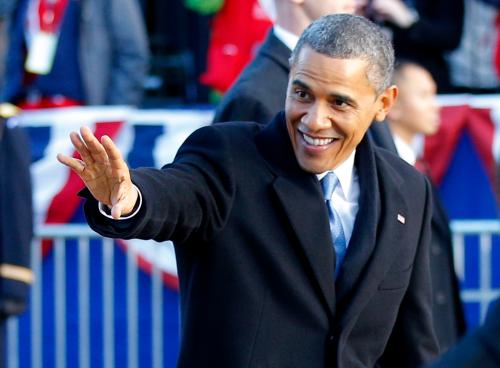
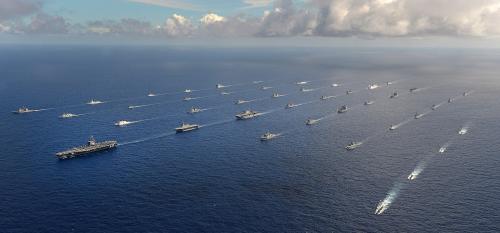

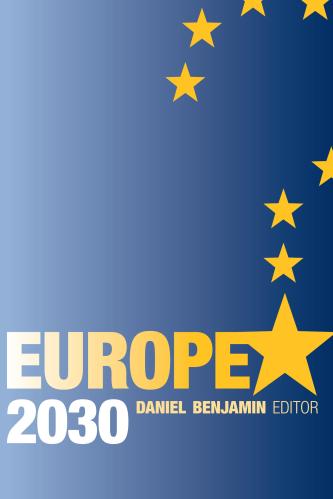
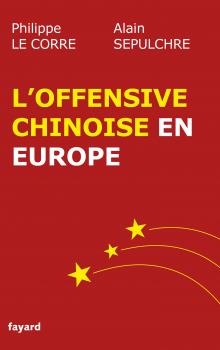
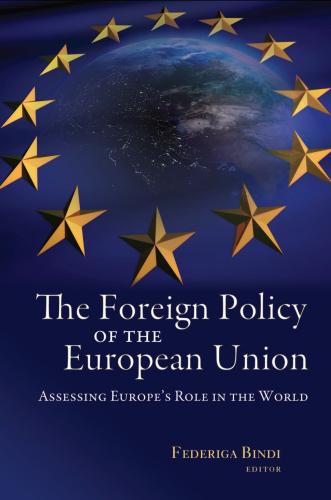
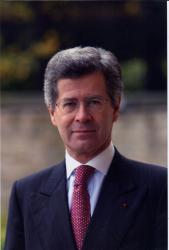
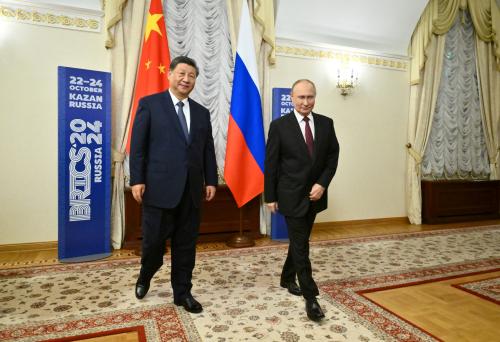
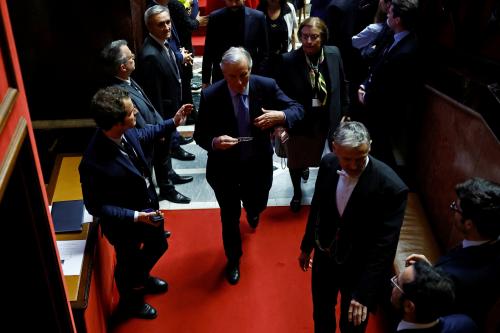

Commentary
With the end of four centuries of Western dominance, what will the world order be in the 21st century?
January 7, 2019